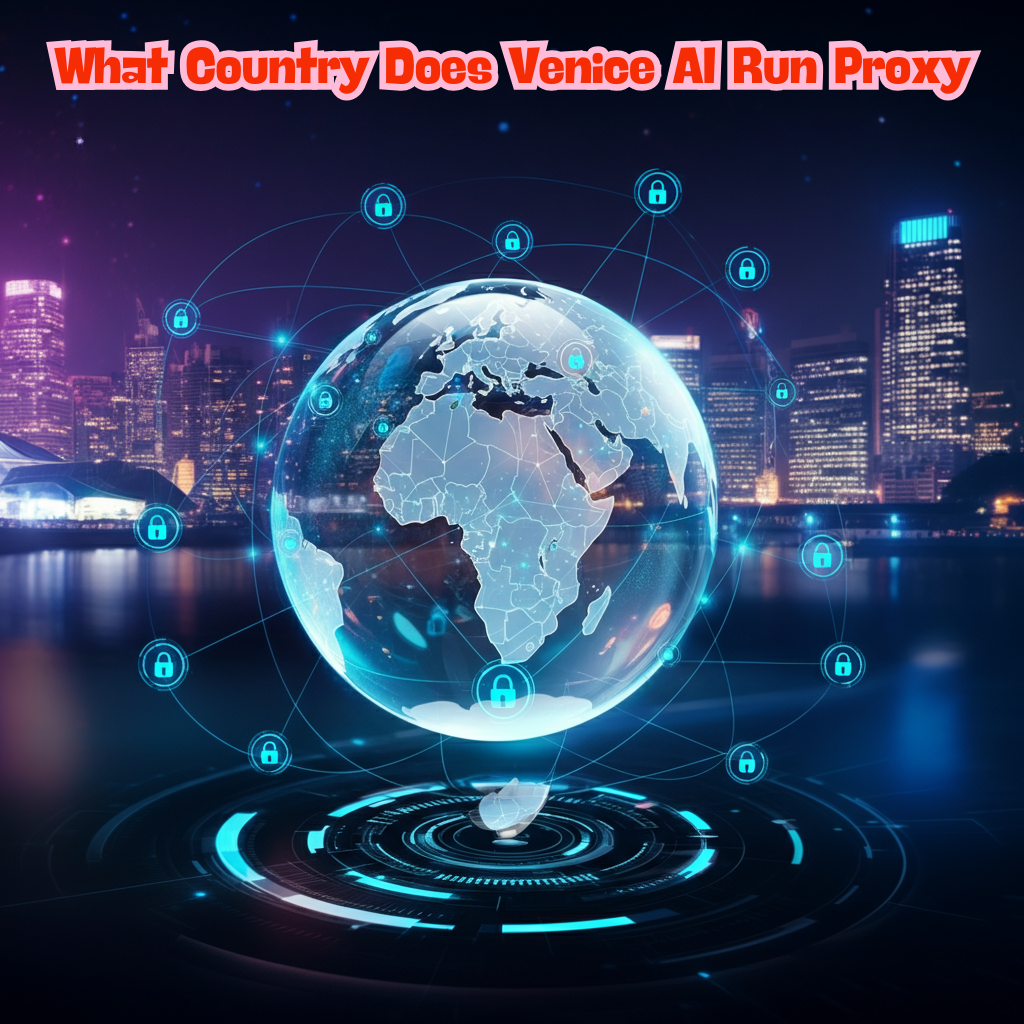Artificial Intelligence (AI) is reshaping how we work and interact with technology. Among the many innovations in this space, Venice AI has emerged as a privacy-focused leader, offering users a unique approach to processing AI tasks securely and anonymously. But many users often wonder, “What country does Venice AI run proxy from?” To fully understand this, we need to explore how Venice AI operates its proxy network, the underlying structure, and why this matters for users worldwide.
Understanding How Venice AI Proxy Works
To grasp the answer, we first need to understand how Venice AI’s proxy system functions. Venice AI operates through a decentralized network where tasks are processed via proxy servers before reaching the core GPU computation units. This setup ensures user data remains anonymous and secure by distributing traffic through multiple nodes rather than channeling it through a single source.
The proxies essentially act as intermediaries, cloaking your identity and anonymizing your requests. This is a pivotal feature for anyone concerned about privacy in our data-driven world. By decentralizing the network, Venice AI also minimizes the risks associated with centralized servers, like unauthorized tracking or hacking attempts.
Imagine sending a letter through a labyrinth of secure post offices, each one obscuring your details further. That’s essentially how Venice AI’s proxy system works to safeguard your privacy.
Where Are Venice AI’s Proxy Servers Based?
Venice AI maintains a strict privacy-first approach, which means it does not publicly disclose the exact locations of its proxy servers. However, based on decentralized computing models and industry trends, we can infer that the proxy servers are likely distributed across strategically selected regions. These regions include areas known for robust data infrastructures and privacy laws. Here are some of the most plausible hosting locations:
- The United States plays a significant role due to its advanced cloud computing infrastructure. Many tech giants like AWS and Google Cloud operate extensive data centers here, making it a hub for AI operations.
- European Union Nations are a likely host thanks to their stringent data privacy regulations, such as the General Data Protection Regulation (GDPR). This makes the EU an attractive option for businesses prioritizing privacy in AI operations.
- Singapore and Japan stand out in Asia for their world-class internet infrastructure and focus on technological innovation. Their high-speed networks make them ideal locations for hosting AI services.
- Decentralized Cloud Providers could also be used by Venice AI. These providers distribute computing tasks across independently operated data centers worldwide, aligning seamlessly with Venice AI’s commitment to decentralization.
While Venice AI is tight-lipped about pinpointing its proxy server locations, industry insights suggest these regions are highly plausible contributors to its network.
Privacy and Security Measures of Venice AI
Venice AI doesn’t just rest on its decentralized network to ensure privacy—it goes further. The platform integrates end-to-end encryption for all user data handled through its network. This means that not even Venice AI itself can access the contents of your interactions. Unlike many platforms, Venice AI follows a strict no-storage policy, refraining from storing user prompts or responses on its servers.
This double-layered approach drastically reduces the chances of data leaks while building trust among users concerned about their online privacy. Dr. Karen Lin, a cybersecurity expert, notes, “Decentralization combined with encryption creates a robust framework for privacy. It’s an effective way to combat cyber threats and protect user data.” Venice AI takes this expertise to heart, prioritizing security at every level.
Why the Location of Proxy Servers Matters
For users, understanding the geographical distribution of proxy servers is about more than just curiosity—it has real implications. The location of servers influences data privacy, latency, and compliance with international regulations.
Firstly, the legal environment of a host country impacts how data is handled. Countries with data protection laws like GDPR in Europe or the CCPA in the United States ensure stricter oversight of technology companies. For users, this translates to greater peace of mind that their data is not being exploited or misused.
Secondly, latency and speed play a crucial role, especially for users who need real-time data processing. The closer the proxy servers are to the end user, the faster the AI interactions will occur. Decentralizing across multiple regions helps Venice AI optimize response times for users regardless of location.
Finally, compliance with international laws is vital for a global platform like Venice AI. By operating in diverse regions, Venice AI ensures that it meets the legal obligations of users across different countries. For businesses, this means confidence that their operations align with local regulations.
What Makes Venice AI Stand Out?
Venice AI’s decentralized approach to AI computing is a step away from traditional centralized models. This is particularly relevant at a time when user privacy is becoming a necessity rather than a luxury. The platform’s commitment to using global proxy networks, end-to-end encryption, and no-storage policies makes it a reliable option for anyone seeking anonymity and security in their AI services.
Industry analysts agree that decentralized AI networks are the future. According to Dave Richards, an AI strategist, “Decentralized systems not only improve efficiency but also renew user trust in technology. Platforms like Venice AI are pioneering this shift in how we view data security.”
Final Thoughts on Venice AI’s Proxy Network
The question, “What country does Venice AI run proxy?” highlights the growing demand for privacy-friendly AI solutions. While the exact server locations remain confidential, the broader strategy of decentralization and global distribution offers significant benefits for users worldwide. From ensuring privacy and reducing latency to adhering to international data standards, Venice AI is setting a new benchmark in secure AI computing.
Do you want to experience the future of privacy-first AI for yourself? Consider exploring Venice AI and see how its innovative tools can transform the way you engage with technology.



